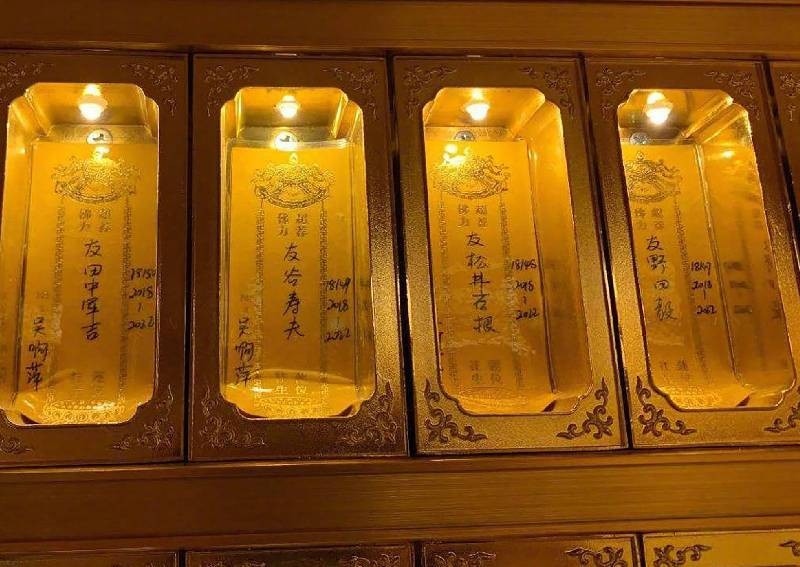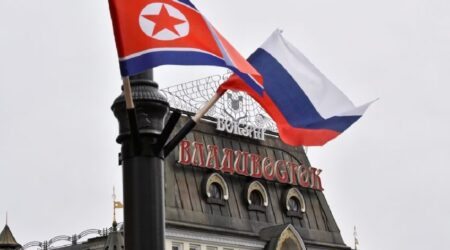China detains woman over offerings to Nanking massacre war criminals

Police in China’s eastern city of Nanjing have detained a woman authorities say honoured Japanese war criminals at a Buddhist temple, as news of the tributes sparked public outrage and disciplinary action against officials.
Wu Aping, 31, a medical school graduate, confessed to having been deeply troubled by accounts of the brutal Japanese invasion, and came to believe that worshipping the war criminals would relieve her mental suffering, city authorities said in a statement.
Investigators also found Wu had been to the hospital three times since 2017 for insomnia and anxiety, and was put on sedatives and hypnotic drugs.
This comes after a viral post on Chinese social media platform Weibo revealed memorial tablets at the city’s Xuanzang Temple dedicated to four Japanese war criminals who took part in the 1937-38 Nanking massacre, a festering wound in China-Japan relations.
Nanjing city authorities said Wu had paid for the inscription and maintenance of six tablets at the temple since 2018.
Five of the six tablets were inscribed with the names of Japanese war criminals, four of whom were pictured in the Weibo post.
The sixth was that of Wilhelmina Minnie Vautrin, an American missionary known for protecting Chinese refuge-seekers in Nanjing – then known as Nanking – during the six weeks of mass executions and rape perpetrated by the invading imperial Japanese army.
The operation, which began on Dec 13, 1937, left more than 300,000 civilians and soldiers dead, according to Chinese official estimates.
She is accused of “picking quarrels and provoking trouble”, local police said, a sweeping charge that could result in up to five years in prison.
News of the tributes to war criminals also prompted Buddhist associations across China to require inspection of their memorial tablets and ensure proper conduct by visitors.
According to Nanjing authorities, Wu worked as a nurse for six years and later became a lay Buddhist. In registering the tablets, she described the inscribed persons as her friends.
While Wu believed worshipping the war criminals would free her of psychological suffering, she thought her tributes to Vautrin, who later committed suicide due to war trauma, would help free the soul of the missionary teacher.
The principal monk in charge of the Xuanzang Temple, as well as the director and a deputy director of the ethnic and religious affairs bureau of the related district of Xuanwu were dismissed shortly after the news broke.
Multiple Buddhist associations, including those in Guangdong and Jiangxi, have released notices requesting sites to register each of their tablets and report any irregularities to the affiliated organisation.
The controversy comes amid a low point in Sino-Japanese relations, with nationalistic sentiments rising in China. Some web users even targeted activities inspired by the traditional Japanese Summer Festival that have been observed in China for years, often combined with anime elements.
The row over the tributes saw related events cancelled in a number of cities, including Xinyu, Xuzhou and Nanjing in Jiangsu province.
“Of course, anime fairs can be held, but it is really not good to combine it with the Summer Festival which has elements of a sacrifice ritual. We can certainly be open and tolerant, but we will not condone [ill-intended] activities, it’s a matter of principle,” wrote one user on Weibo.
“If it’s an anime fair, call it an anime fair, why make it the ‘Summer Festival’?” wrote another.
Behaviour glorifying the imperial Japanese army always provokes a public backlash because, for generations of Chinese, the Nanking massacre has been a living scar in the country’s history.
Last year, Chinese actor Zhang Zhehan, star of the hit TV series Word of Honour, faced boycott calls over photos from 2018 that appeared to be cherry blossoms near the Yasukuni Shrine. Zhang denied he had ever visited the shrine. Four months later, he lodged a police report for defamation.
The shrine controversially commemorates 2.5 million war dead, including 14 Japanese wartime leaders convicted as war criminals by an Allied tribunal after World War II.












Leave a Reply